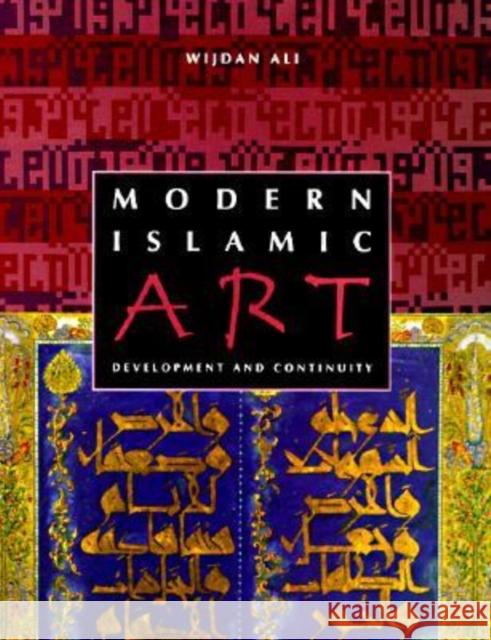Modern Islamic Art: Development and Continuity » książka
Modern Islamic Art: Development and Continuity
ISBN-13: 9780813015262 / Angielski / Twarda / 1997 / 224 str.
"The first monograph to successfully address the dual questions of the development of painting in the Islamic lands in the 19th and 20th centuries and the significance of an indigenous 20th-century artistic tradition . . . presents a lucid and objective discussion of provocative questions related to the evolution of contemporary painting from Islamic lands, including the role of colonial institutions, indigenous patronage, art education, and the formation of a national artistic identity."--Layla S. Diba, associate curator for Islamic art, Brooklyn MuseumIn this beautifully illustrated book, Wijdan Ali offers a historical survey of the development of modern painting in the Islamic world from the 19th century to the present. She provides background on dominant artistic traditions before 1900 as well as an evaluation of the loss of traditional aesthetics under the impress of Western culture. Ali also explores the persistence and reemergence of calligraphic art as an expression of national artistic identity, and hers is the first book to consider in depth the modern calligraphic school.
Ali's account begins with a descriptive survey of the development of contemporary art in the heartland of Islam, from Morocco to Iran. Her discussion incorporates the historical, political, social, and economic factors that brought about artistic and aesthetic changes in the region. Building on this survey, she analyzes the factors behind the evolution of various styles of calligraphic art, their substyles and adherents, and their respective places within the contemporary calligraphic school. In an appendix, she provides biographical data on the most influential modern Islamic artists. More than 150 color and black-and-white photographs allow the reader to see and appreciate the beauty and importance of these works.
While a few recent collection catalogs have hinted at the growing interest in the art of the Islamic world, Ali's study is by far the most comprehensive yet undertaken of Islamic art in the contemporary period. It will substantially expand the study and concept of "modern art" beyond the narrow province of American and western European schools and establish a broad foundation for future investigation of modern artistic movements in the Middle East.Wijdan Ali is a painter, art historian, and lecturer at the Institute of Diplomacy, Amman, Jordan. Her most recent publications are What Is Islamic Art? (1996) and Modern Art in Jordan (1996)."











